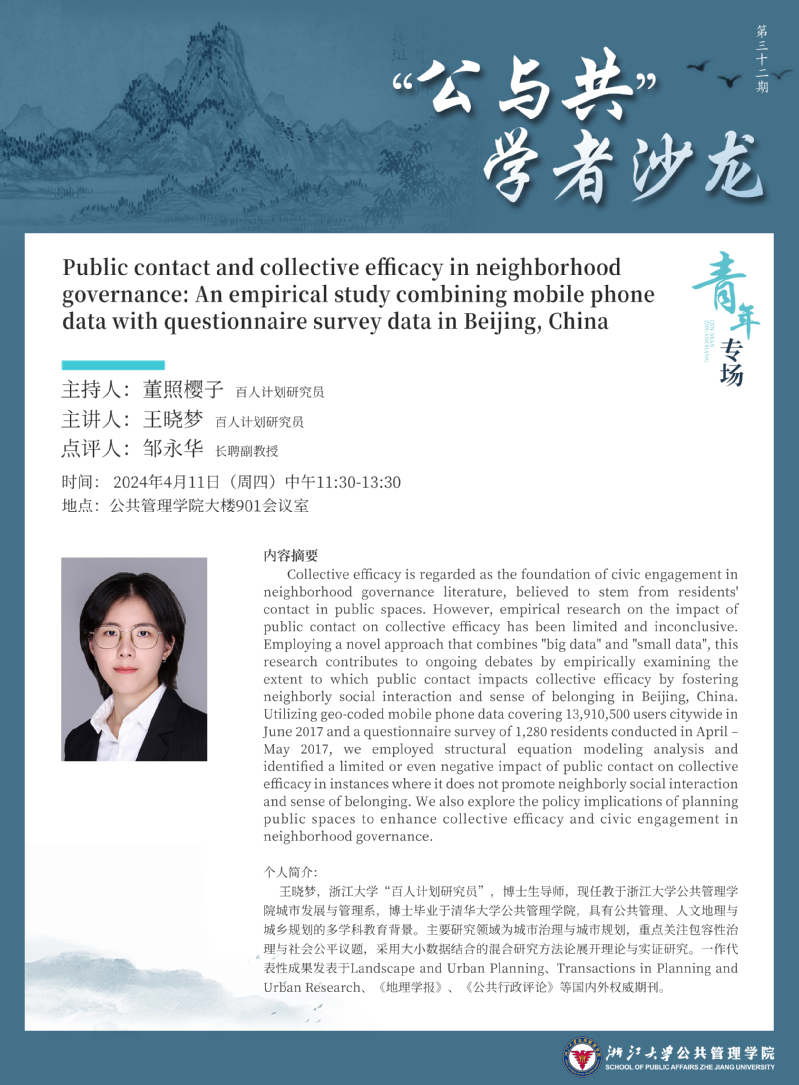Moderator: Dong Zhaoyingzi, researcher of the Hundred People Program
Speaker: Wang Xiaomeng, Researcher of 100 People Program
Reviewer: Zou Yonghua, Associate Professor
Date: April 11, 2024 (Thursday) 11:30-13:30 noon Venue: Conference Room 901, School of Public Affairs Building
Content summary:
Collective effcacy is regarded as the foundation of civic engagement inneighborhood governance literature, believed to stem from residentscontact in public spaces. However, empirical research on the impact ofpublic contact on collective effcacy has been limited and inconclusive.Employing a novel approach that combines big data and small data, thisresearch contributes to ongoing debates by empirically examining theextent to which public contact impacts collective effcacy by fosteringneighborly social interaction and sense of belonging in Beiiing, China.Utilizing geo-coded mobile phone data covering 13,910,500 users citywide inJune 2017 and a questionnaire survey of 1,280 residents conducted in AprilMay 2017,we employed structuralmodeling analysis andequat1onidentified a limited or even negative impact of public contact on collectiveeffcacy in instances where it does not promote neighborly social interactiorand sense of belonging.We also explore the policy implications of planningpublic spaces to enhance collective efcacy and civic engagement inneighborhood governance.
Personal Profile:
Wang Xiaomeng, a researcher and doctoral supervisor of Zhejiang University's 100 People Program, currently teaches at the Department of Urban Development and Management, School of Public Affairs, Zhejiang University. She graduated from the School of Public Administration, Tsinghua University. She has a multidisciplinary education background in public administration, human geography and urban and rural planning. Her main research field is urban governance and urban planning, with a focus on inclusive governance and social equity. She uses a mixed research methodology combining large and small data to carry out theoretical and empirical research. One representative work has been published in Landscape andUrban Planning, Transactions in Planning and urban Research, Acta Geographica Sinica, Review of Public Affairs and other authoritative journals at home and abroad.



